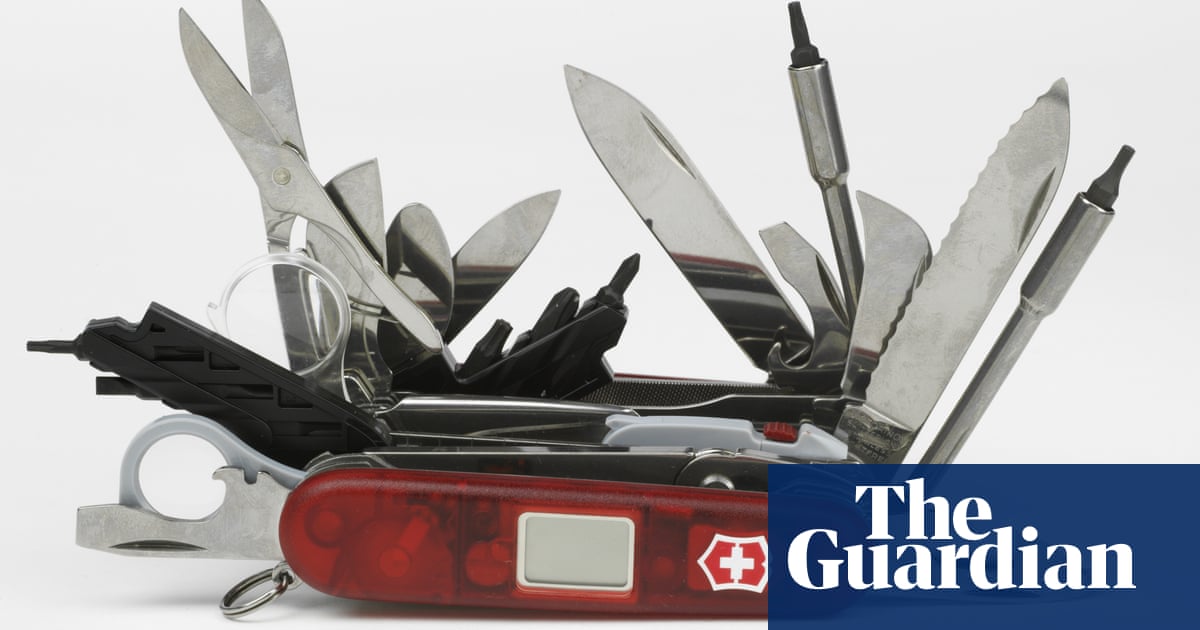
For more than a century, the Swiss army knife has been an essential piece of kit for everyone from picnickers and equestrians, to golfers and astronauts.
But now the maker of the pocket-knife, with its red or blue shell and multiple tools, has bowed to what an English judge last week called the “plague of knife crime” by designing a version without a blade.
In response to an increasing number of countries imposing bans or restrictions on carrying knives, Victorinox, the Swiss firm that produces the pocket tools, is in the early stages of developing the first bladeless version of its product.
“We’re concerned about the increasing regulation of knives due to the violence in the world,” said Carl Elsener, the fourth-generation CEO of the family-run company.
“In some markets, the blade creates an image of a weapon. I have in mind creating a tool that would be useful for cyclists. Cyclists have a need for specific tools but not necessarily a blade,” he said. “We already have a tool specifically for golfers.”
Last week, Mr Justice Saini blamed the “plague of knife crime” in Bristol and surrounding areas for the murder of 16-year-old Mikey Roynon, a talented teenage rapper stabbed in the neck at a house party in Bath.
The same week, a 15-year-old boy who stabbed another teenager in the heart in full view of pupils leaving a primary school in Leeds, was found guilty of murder.
The murders came amid reports of soaring demand for body armour for shopping centre security staff amid a 65% rise in violent and abusive incidents in the past two years.
Under UK law, a person can only carry a knife in public if it has a folding blade that is less than 3in (7.62cm) long.
For all other knives, it is illegal to carry them in public without a good reason, which can include needing the knife for work, wearing it as part of a national costume or for religious reasons, such as the curved kirpan knife carried by some Sikhs.
Elsener said Victorinox was responding to the tightening of regulations by developing blade-less tools for specific outdoor activities or sports.
Victorinox produces about 10m of the pocket tools each year. There are about 400 different types to choose from, including one that boasts 73 functions. They have even been carried into space by Nasa astronauts.
However, until now they have always had at least one blade.
The company has already had to adapt its products to tightened restrictions on carrying knives and in the aftermath of 9/11 the company’s sales fell by 30%.
Even in Switzerland, the home of the brand, there has been discussion about what people are permitted to carry. In 2016, there was a parliamentary debate about banning blades longer than 5cm. One MP even asked: “Will the famous Swiss army knife be forbidden?” The proposed amendment was dropped.
The Swiss army knife was first developed in Ibach, Switzerland, in 1891 and was orginally referred to as an Offiziersmesser, or officer’s knife, as the company had a contract to supply knives to the army.
The product was given the name Swiss army knife six years later.